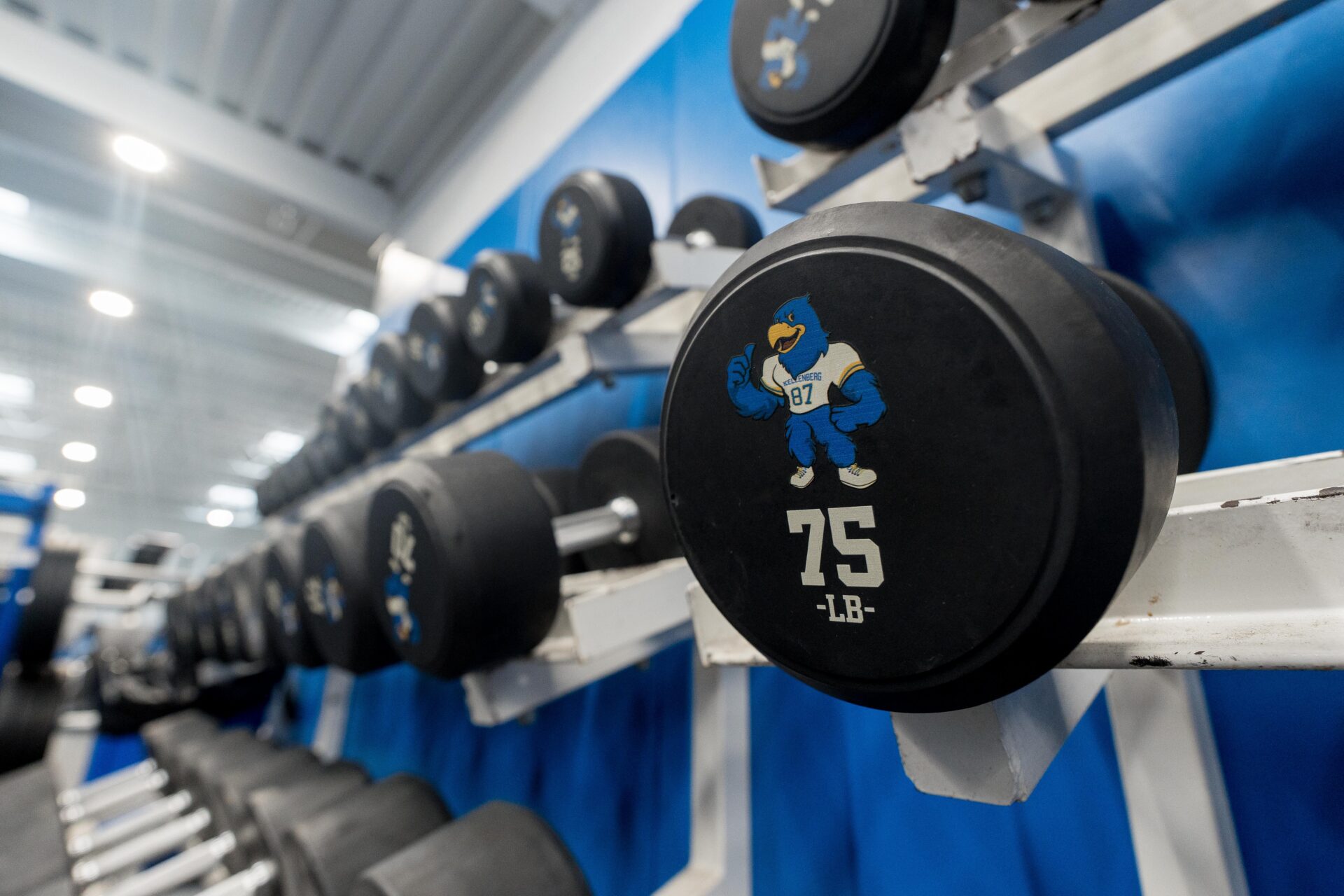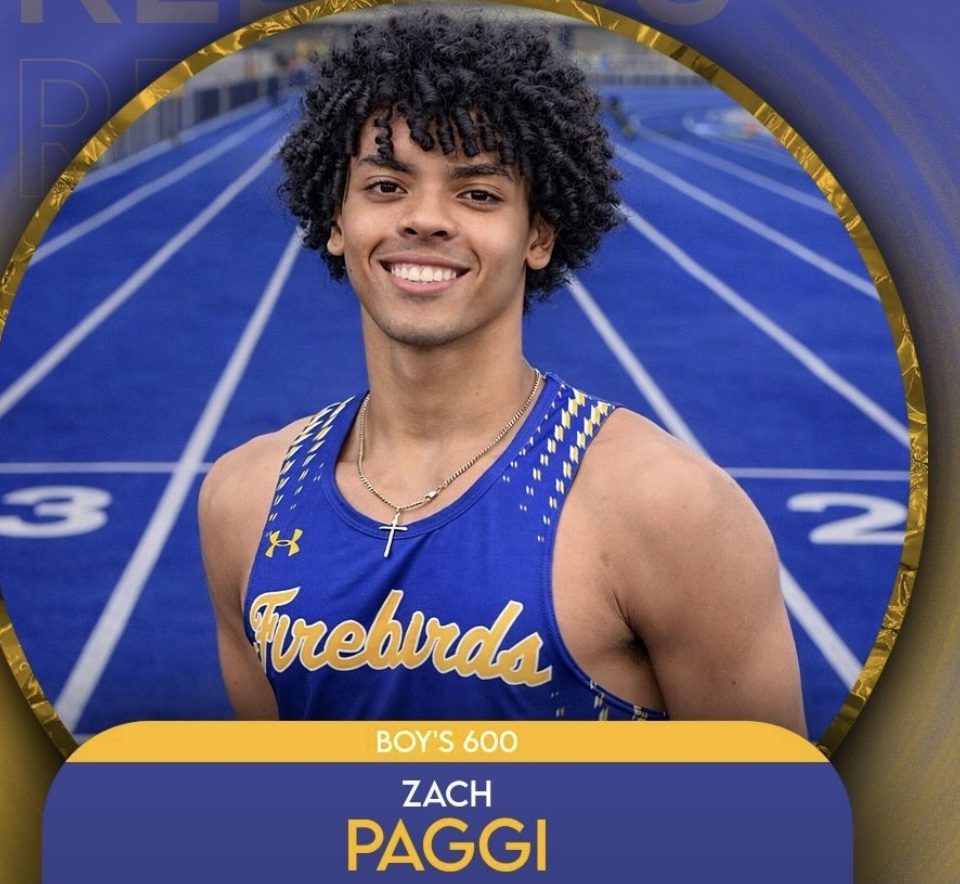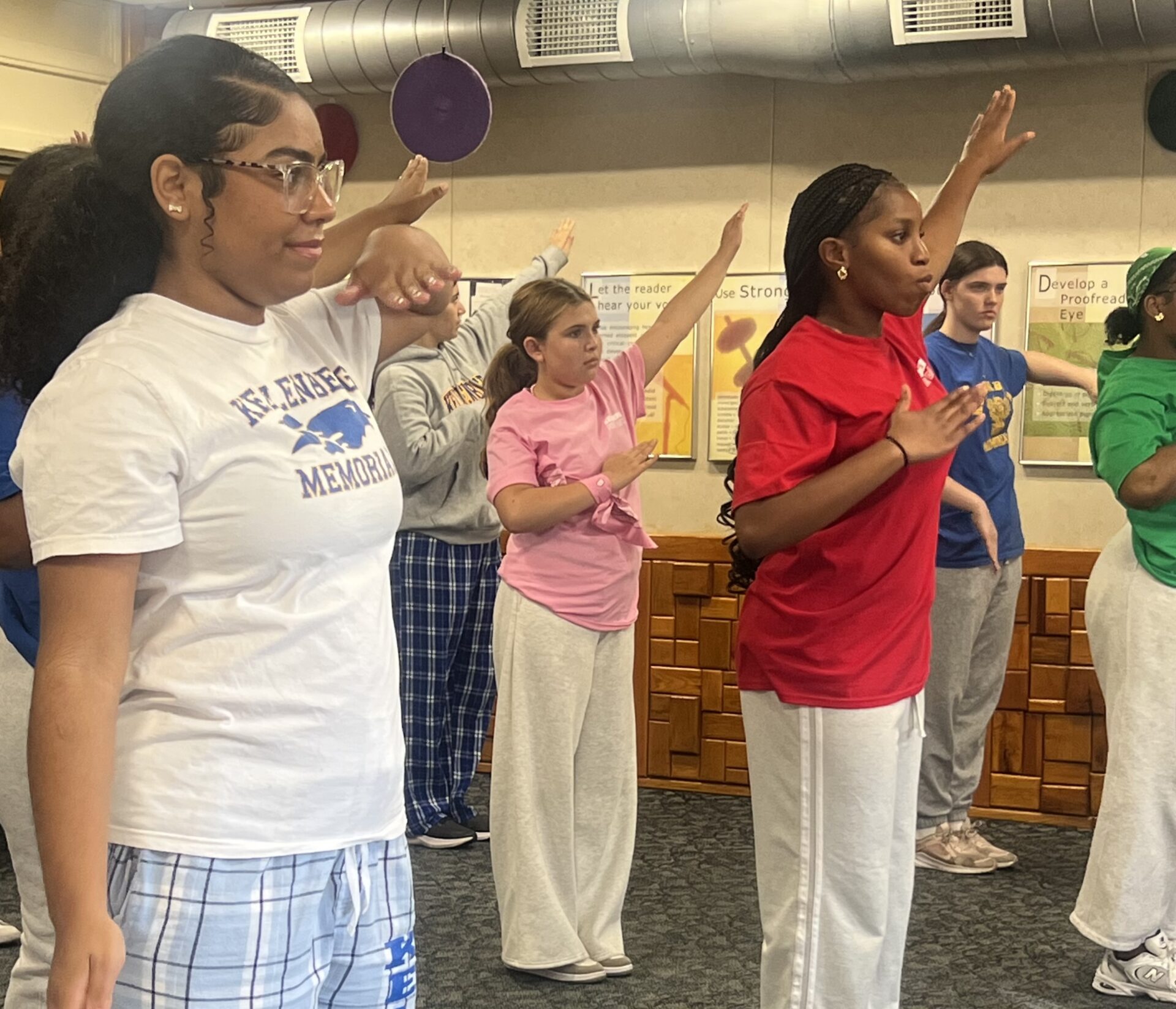“I think Kellenberg was a very integral part of where I ended up as an adult,” stated Chef Marc Forgione ’96 during a recent phone interview with Heart & Mind.
At just 40 years old, the Firebird chef has certainly made quite a name for himself in the culinary world as chef/owner of Michelin-starred Restaurant Marc Forgione, chef/owner of American Cut, and co-owner/partner of a Laotian restaurant, Khe-Yo. In 2010, Marc won season 3 of Food Network’s “The Next Iron Chef” at just 31 years old, making him the youngest chef to earn the title. In 2014, he became an author as well with the release of Marc Forgione: Recipes and Stories from the Acclaimed Chef and Restaurant.
Marc is on the cusp of opening Davide, a coastal Italian restaurant in the Meatpacking District of New York City, with his father Larry P’96,’98, a culinary legend in his own right who revolutionized American-style cooking in the ’70s and ’80s. Marc’s fellow Firebird alumnus brother, Bryan ’98, is the executive chef at Buddy V’s Ristorante in Las Vegas.
In keeping with the Marianist education of the heart and mind he received at Kellenberg Memorial, Marc demonstrates the full richness of living in a way that embodies the C.O.R. principles of Civility, Order, and Respect. Recognizing the intrinsic worth of all people and the environment, Marc is a champion of sustainable eating and supports numerous charities, including Family Reach Foundation, Chefs for Kids Cancer, City Harvest, and Feeding America.
Marc is a graduate of the University of Massachusetts. He resides in Manhattan with his wife, Kristen, and son, Santino (1).

One of the first things Kellenberg students learn are the C.O.R. principles of Civility, Order, and Respect. How would you say those principles play into creating a healthy, happy, and successful environment in the kitchens of your restaurants?
The principle of respect is something that comes first in my kitchen, and I hope in other kitchens. Respect for the business, respect for the ingredients, respect for the cleanliness of your workspace – literally, respect for everything. If you can respect all of those things, everything else falls into line rather easily. With all the pressure you can find yourself under, respect is kind of like a building block. If you don’t have the solid base of respecting the important things, it’s hard to build to success.
A few years ago you participated in (and won!) an Iron Chef America “brother” challenge with one of your siblings, Bryan ’98. One of the judges described your culinary creations as “intellectual.” You were quick to note that not having gotten the best grades in school when you were younger, the compliment meant a lot to you. At Kellenberg, the emphasis is really on educating not only the mind, but also the heart. How do you think your time here helped set you on the path of self-discovery to find your passion and talent for cooking?
Kellenberg ended up being a perfect place for what I think I needed as a person. If I hadn’t gone to Kellenberg, I don’t think I would have ended up going on to UMass, meeting the people that I did, traveling the way I traveled, and becoming the chef that I have become. I think Kellenberg was a very integral part of where I ended up as an adult.
"Kellenberg ended up being a perfect place for what I think I needed as a person."
From where do you draw your inspiration to stay fresh and innovative in the kitchen?
I tell anybody that will listen how lucky I am to get to do what I do. Yes, it’s a hard business and yes, it’s crazy – and they make it harder every year – but I’m like a kid that gets to play with toys and it’s because I truly enjoy cooking, creating, and all the little bits about the restaurant business. The cool thing about the restaurant business is that as you get older, you kind of evolve. I might not be the same person I was 5 or 6 years ago but I don’t think my restaurant is either, so we’re growing together.
Obviously you love to cook and you love being a chef. How do you balance your passion for your craft with all the business demands that come with nurturing the success of all of your restaurants and partnerships?
You have to have good partners. I have certain things that I think I’m good at – a lot of the creative stuff, the leadership part of it. But I’d be lying if I said I sat down at a desk and looked at the numbers for hours upon hours every day. I have people that do that. You have to find the right people that you trust. You can have the best-tasting food in the best restaurant in the world, but if the business side of it doesn’t work, you’re in a lot of trouble.
What type of culture or environment do you strive to create in your restaurants?
I try to make everything as fun as possible, even though at the end of the day it is work and it is business. We’re all here a lot – especially the day-in and day-out managers here who are still working 60 or 70 hour weeks. So you have to try to create an environment that they also enjoy coming back to as well. There’s nothing worse than negative energy, especially when you’re in a tight, small, hot space. I try to create an atmosphere so it’s like a family. Everybody eats lunch together at 4 PM and sometimes we’ll go out and have a couple of drinks together after work. It’s kind of like being principal of a high school. I get to mentor these kids and usually they work here for a couple of years. I have to nurture and teach them and hope that they come out better people at the end of it.
You are involved with charity work and food policy work with the Family Reach Foundation, Chefs for Kids, City Harvest, and Feeding America. Why do you feel it’s important to give back in this way?
At the end of the day, if you have a roof over your head, your health, water, and food – all the basic stuff that most of us have – consider yourself very lucky because there are a lot of people that don’t. If I could I would give everything I have away to help the people that don’t have those basic necessities. It breaks my heart that these aren’t things that every single person has. Anything I can do to try to help in any little way, I will.
Is it true you are related to St. Padre Pio?
Yes, his real name is Francesco Forgione and he looks just like my dad. We kind of lost touch with that side of the family, which was the Forgione side. From what we’ve gathered though, there’s a direct line but we’re just not sure of the details. It’s funny because the Forgione family, we have not what I would call good luck, but protective luck.
You and your father are hard at work preparing for the opening of your new restaurant, Davide, in the meatpacking district. Are you excited to be working alongside your dad?
I’m extremely excited to be working with my dad. I worked for him when I was a lot younger, but I don’t think I was mature enough at the time. I kind of just looked at him like “dad” and not like my boss. I think I have a little regret from that. But again I was a kid… but now I think he’s a more mature person, and I’m a more mature person. We’re just going to do this thing together and have fun with it. The whole concept is kind of created around him and me cooking in his backyard.
What are you most proud of in your life to date?
My wife and my son. I have everything I could need and more, and I have a lot of what I call “plusses” to be grateful for. Everything else is just gravy on top, and I got a lot of gravy.






